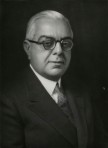
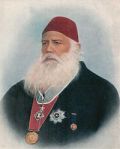 |
 |
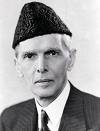 |
INTRODUCTION: THE FOUR REMARKABLE MUSLIMS OF THE INDIAN SUB-CONTINENT WHO ASSERTED THE TIMELESS VALUES OF ISLAM N THE 19TH-20TH CENTURIES
There have been, in my view, during the last hundred years, four outstanding Muslims in the story of this sub-continent of India and Pakistan. The first, in point of time, was Syed Ahmed Khan who, a hundred years ago was reaching the very peak of his career and embarking upon the historic step of founding what became Aligarh Muslim University. The other three were born in 1877, namely Quaid-e-Azam Mohammed Ali Jinnah, Dr. Mohammed lqbal and finally the great Muslim whose birth centenary we are celebrating today (2nd November 1977), namely the late Aga Khan. Perhaps it would be useful to recall that all four of these remarkable men asserted both the timeless values of Islam and yet at the same time were fully aware of the need for Muslims to understand and effectively deal with current problems and challenges. There is thus, a great deal of similarity between the four of them, both in their approach to Muslim matters and in their approach to the modern world, as I think you will agree, after I have given, in the short time available today, some of the outstanding qualities of the late Aga Khan as a Muslim in four particular aspects. Those aspects are: as a Muslim with respect to his own Ismaili Shi’a Muslim community; second as a Muslim concerned with the affairs of this sub-continent; third as a Muslim looking at the rest of the Muslim world, and finally, as a Muslim in relation to the non-Muslim world and the world as a whole.
I: AS IMAM OF ISMAILIS: THE AGA KHAN’S ADVICE ON EDUCATION, CONCILIATION ON THE ISSUE OF THE FIRST FOUR CALIPHS, AND LOYALTY TO THE COUNTRY OF ADOPTION
The Aga Khan stressed that education should have a high religious and moral content in accordance with the teaching of Islam and, at the same time, must make students competent as active and practical members of society, able to handle the problems of the modern world. He gave great emphasis to the importance of women’s education.
With respect to his leadership of his own Ismaili Shi’a Muslim community it is not, of course, possible for a Sunni Muslim like myself to comment adequately on his teachings of Ismaili doctrine and practice. But there are certain lessons he constantly emphasized to the Ismaili community which are of the greatest interest to all other Muslims. He paid the greatest attention to the question of education, and stressed that this education should have a high religious and moral content in accordance with the teaching of Islam and, at the same time, must make students competent as active and practical members of society, able to handle the problems of the modern world. You will find, time and again, references to the importance of Muslims acquiring scientific knowledge, thereby recapturing the spirit of earlier Muslims. You will find he refers with great emphasis to the importance of women’s education.
And, what is of the greatest significance, is the broad- minded wisdom he displayed in commenting upon Muslim history. On the question of the first four caliphs at Madina, after the death of the Prophet, you will find in the late Aga Khan’s healing and conciliatory approach that he gave one of the soundest reasons why all four should be accepted by all Muslims whatever their school of thought or sect. He took as his basis for this very desirable and statesman like attitude the point of view of the fourth caliph himself, with respect to the first three caliphs.
The Aga Khan always asked members of his community to be loyal to the particular state of which they were citizens
Another extremely significant part of his message to the Ismaili Muslim community is sometimes regarded as not the same as the attitude that other Muslims should adopt, but this is wrong. It concerns the importance the late Aga Khan always attached to the members of his community being loyal to the particular state of which they were citizens. This meant, of course that for those of his community in Pakistan that they should be fully committed to Pakistan, like all other citizens of the state and show, both by their words and deeds, that they were an asset and a valuable part of society. By the same token he attached great importance to members of his community who were citizens of other states, like India for example, being loyal citizens of those states. This, in fact is a rule which applies to all Muslims, because if Muslims in states where they are in a minority are not loyal to those states, they can hardly expect the majority communities in those states to treat them as they would wish to be treated. Indeed, the majority communities in those other states would then regard Muslims, if they are not loyal, as unfit to be accepted as full citizens. It is vital that Muslims, where they are in a minority, should do nothing to give the majority community any excuse for treating them unjustly or imposing restrictions or penalties upon them. This rule is also of the greatest importance because by the principle of reciprocity Muslims, for example in Pakistan, can hardly demand of non-Muslim citizens in Pakistan, full loyalty to Pakistan, if we Muslims do not practice the same virtue where we are in minority ourselves.
II: ON AFFAIRS OF THE INDIAN SUB-CONTINENT: THE AGA KHAN CONTIBUTION TO ALIGARH AND RECOMMENDATION FOR THE ADOPTION OF ARABIC AS PAKISTAN’S NATIONAL LANGUAGE
The Aga Khan’s support and active campaigning was a major factor in putting the Muslim University at Aligarh which enabled the Muslims of the subcontinent to recover from the disaster of 1857 and to properly equip themselves for the battle of survival and progress of later years
His advice to his own Ismaili Muslim community moves very easily into his advice to all the Muslims of the subcontinent and we find that his was a tremendous contribution, not merely in terms of money, (although this was substantial) but also in terms of local support and active campaigning [Please see literary reading “Transforming a Dream Into Reality”, Ed. Note]. This was a major factor in putting the Muslim University at Aligarh, founded by Syed Ahmed Khan, on to a firm footing which enabled this university to play its vital indispensable role in enabling the Muslims of the subcontinent to recover from the disaster of 1857 and to properly equip themselves for the battle of survival and progress of later years. It has often been said that without Aligarh, there could not have been a Pakistan and, equally correctly, it can be said that without a forward looking Muslim Community in any part of the subcontinent or indeed the Muslim world as a whole, no enduring development can be possible, whether with respect to the Muslims themselves or in their relations with the non-Muslims in any area.
The Aga Khan developed and exhibited broad tolerance with regard to the natural and normal differences of opinion about Arabic being paramount and essential for bringing about real substantial unity in Pakistan that could withstand any crisis of provincial feeling
It is also important when considering the significance of the late Aga Khan to remember that he developed and exhibited broad tolerance with regard to the natural and normal differences of opinion as in 1951 about Arabic being paramount and essential for bringing about real substantial unity in Pakistan that could withstand any crisis of provincial feeling. It is our misfortune that his wise farsighted advice was not taken at that time. But it does not make his advice any less relevant to Pakistan’s present problems. But Arabic, in Pakistan, for example, has two other significant functions which are probably even greater. Without Arabic, a Muslim cannot have direct access to the Holy Qur’an, which God in His wisdom chose to reveal in Arabic. Without this direct access to the Holy Qur’an, i.e. in the language in which it is revealed, and without understanding the meaning of the prayers we offer to our Creator, it is difficult for Muslims to become increasingly better and better informed as Muslims about Islam itself. After all, knowledge is an essential part of Muslim faith. The very first Surah to be revealed (Surah 96) begins by commanding Muslims to ‘read’, and goes on to emphasize that one of the great proofs of God’s beneficence and mercy is that he has taught man knowledge. The other great significance of Arabic, which doubtless was also in the late Aga Khan’s mind at the time, that he stressed its importance is that it is indispensable for enabling Muslims from different parts of the Muslim world to converse with each other and that Arabic has the potential of being the authentic vehicle of unity from Morocco to Indonesia.
III. THE AGA KHAN AS CHAMPION AND DEFENDER OF ISLAM
Finally the late Aga Khan’s attitude to non-Muslims and the non-Muslim world was a forceful combination of a constant defense and a positive championing of Islam against the hostile criticisms and ill-founded assertions of certain people, in the West particularly. In a memorable letter to the London Times in October 1951 he defended Islam against some totally un- justified criticism that had been leveled against it. He was foremost in the defense and propagation of Islam everywhere, whether in dealing with the hostility and prejudices of some non-Muslims or in the building of mosques in the West, just as he made substantial contributions to the repair of such outstanding mosques in the Muslim world, as the Badshahi Mosque in Lahore.
IV. THE AGA KHAN’S INTERNATIONAL STATURE AS STATESMAN
The late Aga Khan was greatly respected throughout the world for his frank and statesmanlike approach to world problems and the relationship that is desirable between the different religions of the world…he understood Islam in the true spirit which meant that his attitude to non Muslims was tolerant and understanding and based on mutual respect, the only basis that can further the cause of world peace
But, at the same time, he saw the world wide relationship between Muslims and non-Muslims as a relationship that must become one of mutual respect and understanding and tolerance. This it would seem is essential, if the world is to develop on more sane lines, than a struggle of force against force based on hatred and prejudice.
The result was that the late Aga Khan was greatly respected throughout the world for his frank and statesmanlike approach to world problems and the relationship that is desirable between the different religions of the world. That he was so respected is symbolized by the fact that he was elected as President of the League of Nations in 1937. It was a recognition of the fact that although he was in his ideas and convictions thoroughly Muslim, he understood Islam in the true spirit which meant that his attitude to non Muslims was tolerant and understanding and based on mutual respect, the only basis that can further the cause of world peace.
CONCLUSION
It is no exaggeration to assert that if we in Pakistan forget or ignore the message of Islam, as understood by these four great Muslims and if we revert to narrow bigotry and prejudice in our ideas or practices, to that extent we are endangering Pakistan itself
This is a useful point at which to remind ourselves once again of those four great Muslims, Mohammed Ali Jinnah, Mohammed Iqbal, Syed Ahmed Khan and the Aga Khan. They are in the context of Pakistan, the real expressions of what the movement of Muslim reconstruction and reform means in this subcontinent and in Pakistan in particular. It is no exaggeration to assert that if we in Pakistan forget or ignore the message of Islam, as understood by these four great Muslims and if we revert to narrow bigotry and prejudice in our ideas or practices, to that extent we are endangering Pakistan itself. Conversely, to the extent we remember what these four Muslims stood for and we try to implement in our ideas and practices the true message of the Qur’an and the Sunna of our Prophet, to that extent we are serving Pakistan and assuring its survival and laying the foundations for its welfare, prosperity and greatness in the Future.
____________________
The main body of the above article is from a paper presented by Kamal A. Faruki at a seminar held in Karachi on 2nd November, 1977, to celebrate the birth centenary of Sir Sultan Muhammad Shah, Aga Khan III. The complete paper was produced in a number of periodicals including Ilm, Volume 3, Number 4, March 1978, published by His Highness the Aga Khan Shia Imami Ismailia Association for the UK (now known as the Ismaili Tariqah and Religious Education Board).
Both the photos of the Aga Khan are copyright, National Portrait Gallery, London. The larger photo shown above is by Walter Stoneman. It is a 1930 bromide print, size 6 3/8″ x 4 5/8″ (16.2 cm x 11.7 cm). A larger version of the thumbnail at the top appears in a previous reading.
____________________
Note to the reader:
Please visit the What’s New page for all articles posted in this website (by date). And do visit the Home page if you are coming from an external link.
Special Series on Aga Khan III
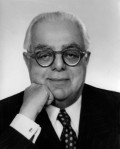
Literary Reading: Hazrat Imam Sultan Muhammad Shah, Aga Khan III – Links to Movies at British Pathe
Literary Reading: Sir Sultan Muhammad Shah, Aga Khan III – The Imam of the Socio-Economic Revolution

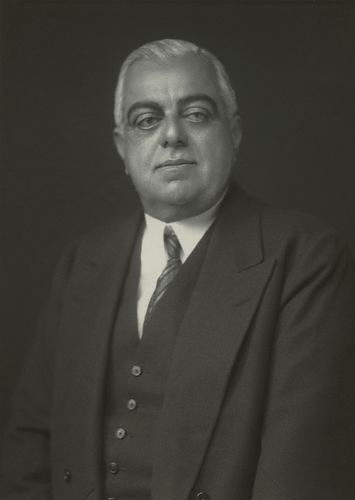

I was reading all these for quite some time and wanted to say something about it but since this article published I am relaxed.
Keep mind there are 73 sects in Islam; they all believe in Allah; Prophet Mohammed (S.A.S) and Quran. We: Ismailis have Qurani Ayat and Hadiths to support our claim.
Just see our present Imam; Shah Karim Al Hussaini has been doing great job not only for Ismaili; but for entire Muslim Ummah and Humanity at large.
If you don’t believe in him is okay; but those who believe in him; don’t ridicule them.
After becoming Imam of Ismaili Muslims at the age of 20; just see in his Imamat of 50 years what he has done for Ismaili Muslims; Muslim Ummah; and for Humanity at large.
He has been considered a head of state and moreover respected worldwide. He is an inspirational figure and has influence worldwide; not only in Muslim countries but with other non-Muslim countries.
Just imagine his importance; whatever projects he initiate; you will see at foundation ceremony; Head of State of that country will be present where project has been founded.
And on Completion; you will see; at inauguration ceremony Head of State and Ambassadors of most of the countries.
Dear Mr Abdulmalik Merchant
Your series indeed is an essential treasure for every Ismaili Muslim on this earth. It is of special personal significance to me as, in my past University days at Oxford at the Institute of Social Anthropology, I submitted a humble thesis entitled ‘Social Changes in the Ismaili Society of East Africa with Reference to the Four Successive Aga Khans’ back in 1975. It lies at Bodeleain Library. I had no further resources to get it printed or published, as Ugandan Crisis just had just taken place. However, if I had access to your illustrious information it would have been of such value today! I thank you most sincerely for this ‘golden gift’ to readers.
This was the most significant era of 19th and 20th Century of this community carrying on to the 21st under the guidance of the present Imam.
Tolerance and ignorance are two key words that have been used by Imam Sultan Muhammad Shah. The present Imam, Mawlana Shah Karim, also emphasizes on these words and I hope we all learn something out of their messages to resolve the East-West issues we have today. Thank you.
I would like to correct one point. Sir Syed Ahmed Khan had established M.O.College. Aligarh University was created by Sir Sultan Mahomed some 20 years later and he was its first Chancellor. In 1911 he hired a train and toured the whole of India to raise funds for the University. A. Sultan, Stockport, UK, 8/11/2009.
Great article and reminder as to who we are and what we stand for and understand. The fact that we are sects of Muslims and yet together we are one in our faith of Islam. Thank you.